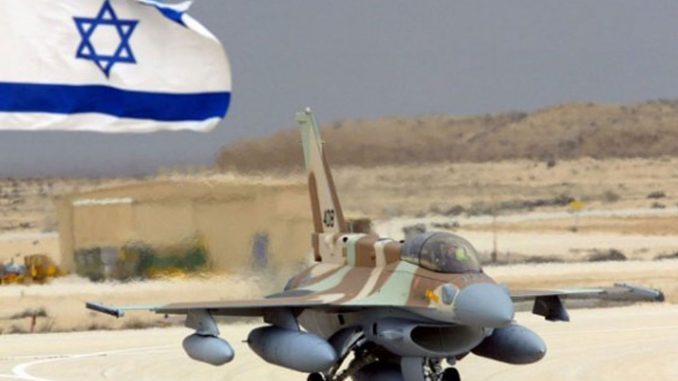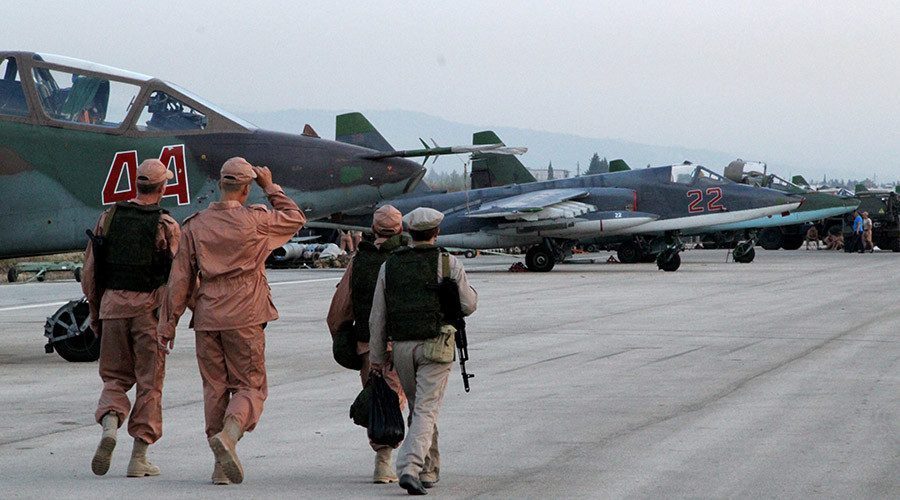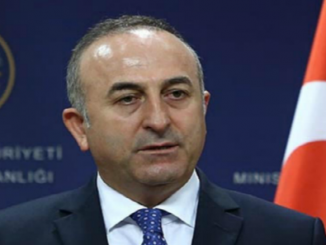
Israeli strikes have hit an arms depot operated by the Lebanese Hezbollah militia near Damascus airport, Syrian opposition sources and monitors said, in a new Israeli strike in less than a week. This attack targeting weapons sent from Iran via commercial and military cargo planes.
Witnesses said a total of five strikes occurred near the Damascus airport road, about 25km from the capital, early on Thursday.
Syrian state media said Israeli missiles hit a military position southwest of the airport, but did not mention arms or fuel. It said “Israeli aggression” had caused explosions and some material losses, but did not expand on the damage.
Video carried on Lebanese TV and shared on social media showed the pre-dawn airstrikes caused a fire around the airport east of the Syrian capital, suggesting fuel sources or weapons containing explosives were hit.
Two senior rebel sources based in Damascus told Reuters news agency that the missiles had hit an ammunition depot in a closed military area that was used by Iran-backed militias operating alongside the Syrian army, led by Hezbollah.
Rami Abdurrahman, head of the Syrian Observatory for Human Rights, said the blasts were heard across the capital, jolting residents awake.
Reuters news agency, citing an intelligence source, said the depot that was targeted handles a significant amount of weapons that Tehran, a major regional ally of Syrian President Bashar al-Assad, sends regularly by air.
The source said the arms depot gets a major part of the weapons supplied to an array of Iranian-backed armed groups, led by Hezbollah, which have thousands of fighters engaged in battle against Syrian rebels.
Allegedly video of the #Damascus International Airport tonight on fire after what are claimed to be Israeli airstrikes. pic.twitter.com/jftHcxtyQ2
— Vince Beshara (@Jacm212) April 27, 2017
Israel does not usually comment on action it takes in Syria. But Intelligence Minister Israel Katz, speaking to Army Radio from the United States, appeared to confirm involvement.
“I can confirm that the incident in Syria corresponds completely with Israel’s policy to act to prevent Iran’s smuggling of advanced weapons via Syria to Hezbollah … Naturally, I don’t want to elaborate on this.
“The prime minister has said that whenever we receive intelligence that indicated an intention to transfer advanced weapons to Hezbollah, we will act.” Katz added.
An Israeli military spokeswoman declined to comment.
#Damascus: Video shows #Israel|i airstrikes against #Assad regime military warehouses at the #Damascus Airport. pic.twitter.com/mKf6KgN0qe
— breaking-news (@UrgentNews5) April 27, 2017
#Damascus#Israel may have bombed weaponry destined for #Hezbollah at #Damascus airport. pic.twitter.com/4VKlsPAstj
— breaking-news (@UrgentNews5) April 27, 2017
Recent attack since less than a week
Less than a week ago, an Israeli attack on a camp for pro-regime forces in Syria killed three fighters near the Golan Heights in Quneitra province on Sunday the 23 of April, an official from the forces said, two days after carrying out similar strikes in the same region.
Al Jazeera reported that Sunday’s attacks targeted fighters loyal to the Assad regime in the Naba al-Fawwar area of Quneitra province, which is located in the 30 percent of the Golan Heights that is not under Israeli occupation.
The official from National Defence Forces (NDF) told AFP that two fighters were also wounded in the attack on the Al-Fawwar camp near Quneitra in southwestern Syria, adding that it was unclear whether the damage was inflicted by an air strike or shelling.
Lebanese outlet Al Mayadeen reported that two were also wounded in the attack.
The Syrian Observatory for Human Rights monitoring group said the attack had targeted a “weapons warehouse” in the camp.
Syria’s official news agency SANA said Israel struck a Syrian army position in Quneitra province on the Golan plateau on Sunday, “causing damage”.
SANA said the Israeli fire came “after a bid by terrorist groups to infiltrate Syrian military positions was foiled”.
The Syrian government labels rebels and other armed groups “terrorists” and accuses Israel of backing them.
Israel’s army declined to comment Sunday on the attack, but mentioned the previous attack two days before, on Friday.
The Israeli army said on Friday that it had targeted positions inside Syria in retaliation for mortar fire that hit the northern part of the occupied Golan Heights.
“The Israeli army targeted the source of the fire,” an army statement said without giving further details.
An army spokeswoman told AFP that she was unable to elaborate on how Israel retaliated or to identify any targets that were hit.
Photos from the aftermath of the alleged Israeli strike on a base of a pro-regime militia in Nabi' al-Fawar Quneitra https://t.co/W2GHSGEXzA pic.twitter.com/7GDgfMBZOK
— Elizabeth Tsurkov???? (@Elizrael) April 23, 2017
Similar confrontation in March
A similar incident happened in March when the Israeli air force conducted airstrikes in Syria against what they described as arms sent for Hezbollah.
The Israeli army said its aircraft have carried out several strikes inside Syria, breaking their habit in not mentioning the details of their strikes as they remained silent after each previous attack. These attacks have been so frequent in the last months, adding more tension to the already complicated Syrian situation.
“Overnight aircraft targeted several targets in Syria,” an Israeli army statement said.
Israeli Prime Minister Benjamin Netanyahu said the strikes targeted “advanced” weapons bound for Hezbollah, which is fighting in Syria alongside Assad regime and is considered enemy by Israel.
“Our policy is very consistent,” Netanyahu said. “When we detect attempts to transfer advanced weapons to Hezbollah, and we have the intelligence and feasibility to carry out an operation, we will work to prevent it.”
In response to the strikes, the Syrian government deployed air defense systems and fired a number of missiles towards Israeli jets, Israeli daily Haaretz reported.
None of the missiles struck the jets, the army said, though one of the projectiles was intercepted by Israel’s Arrow missile defense system north of Jerusalem, according to Haaretz.
“Several anti-aircraft missiles were launched from Syria following the mission and (army) aerial defense systems intercepted one of the missiles,” the statement added.
Previous Israeli airstrikes
On Feb. 22, Syrian media reported that Israeli aircraft targeted Assad regime forces positions near Damascus, including a convoy bearing weapons for Hezbollah group.
According to Arab media, outposts of the Syrian Army’s 3rd Division were targeted in the strikes.
Some were directed toward military positions, while others targeted weapons caches near Ba’albak, in the eastern Qalamoun range, and set alight a Hezbollah convoy, according to the spokesperson, Abu al-Jude al-Qalamouni.
The Hezbollah-affiliated Al-Mayadeen also reported of the strike, saying that it was carried out by two air-to-surface missiles and didn’t result in injuries or substantial damage.
This was the third time in three months the Israeli Defense Force (IDF) has being accused by the Syrian government of targeting Syrian positions from Israeli territory.
In January, Syria blamed Israel for a missile strike on the Mezzeh Military Airport, located in a suburb of Damascus, which was apparently being used as a weapons depot.
Assad regime’s army has warned that there will be repercussions for Israel for the “flagrant attack” on the military base, state TV said, citing a Syrian army command spokesman. It also linked the alleged strike to Israel’s “support of terrorist groups.”
“Syrian army command and armed forces warn Israel of the repercussions of the flagrant attack and stresses its continued fight against (this) terrorism and amputate the arms of the perpetrators,” the army command said in a statement.
There was no information on the death toll resulting from the airstrike immediately available.
Major #Israel airstrikes just targeted Mezzeh Airport outside #Damascus.
One of #Assad regime’s *key* military facilities in the capital. pic.twitter.com/2dSDYhfZHS
— Charles Lister (@Charles_Lister) January 12, 2017
On December 7, SANA reported that “several surface-to-surface missiles” were launched by the IDF from the Golan Heights. At the time, the source in the Syrian armed forces slammed the attack as a “desperate attempt” by Israel to endorse terrorists.
In addition, Israel in the past has targeted positions of Lebanon’s powerful Hezbollah group inside Syria where the Iranian-backed group is heavily involved in fighting alongside the Syrian army.
Israeli defense officials have voiced concern that Hezbollah’s experience in the Syrian civil war, where it has played a significant role and recently helped the Syrian army regain the eastern sector of the city of Aleppo, has strengthened it.
Damascus airport was also hit by air strikes in 2013. Tel Aviv neither confirms nor denies involvement in striking targets inside Syria.
The Syrian crisis began as a peaceful demonstration against the injustice in Syria. Assad regime used to fire power and violence against the civilians and led to armed resistance. 450.000 Syrians lost their lives in the past five years according to UN estimates, and more than 12 million have lost their homes.



